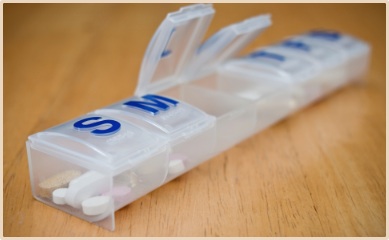Last month, many of us made New Year’s resolutions and we were being deluged with advice about how to eat sensibly, how to exercise our way to fitness, and how to develop and keep healthy habits. But let’s get down to basics: how well do you follow your doctor’s advice?
Doctors will be increasingly held accountable for your overall health and wellness, and your progress towards sustained good health, under the Affordable Care Act (ACA). The ACA aims to increase the quality of care given and reduce the costs, thereby ensuring that the right care is given in the right place at the right time. More care has not proven to be better care, and reducing unnecessary and expensive screens and tests will go a long way to reducing health care costs.
But patients have a responsibility too – and that is to listen to your physician and follow their recommendations regarding nutrition, exercise and taking your medications as prescribed. “Medication adherence” or “medication compliance” are terms used to describe what patients do once they receive a prescription from their provider, including filling, and then re-filling when indicated, taking the prescribed dose in the prescribed manner for the prescribed duration, and promptly reporting any symptoms or side effects to their provider.
 Adult Meducation is a good resource on medication adherence. It maintains “Medications are arguably the single most important healthcare technology to prevent illness, disability, and death in the older population. Of all age groups, older persons with chronic diseases and conditions benefit the most from taking medications, and risk the most from failing to taken them properly.” Consequences of nonadherence could be serious and lead to hospital admissions, falls, and preventable deaths.
Adult Meducation is a good resource on medication adherence. It maintains “Medications are arguably the single most important healthcare technology to prevent illness, disability, and death in the older population. Of all age groups, older persons with chronic diseases and conditions benefit the most from taking medications, and risk the most from failing to taken them properly.” Consequences of nonadherence could be serious and lead to hospital admissions, falls, and preventable deaths.
Why don’t some people comply with their prescribed medications? Some cannot afford them. Some may be too confused to remember to take them. Some may feel they are not working and discontinue them. Fierce Healthcare reports that medication adherence improves with better doctor-patient communication. The patient-physician relationship is the single best predictor for medication compliance. Case management, education, decision aids, and reminder systems are also important factors.
One step many patients don’t take is discussing their medication regime with their physician. Not just the drugs taken, but how and when they are taken. For example, if one medicine is to be taken four times a days and another three times a day, is there a way to take two pills three times a day and the fourth pill once. Or perhaps a dosage change in the four-times-a-day pill would result in taking it only three times a day?
Another issue is that certain pills must be taken on an empty stomach while others should be taken with food. If a morning pill must be taken one hour before eating, then breakfast has to be delayed. Add in a pill that has to be taken one hour after eating and the schedule gets very complicated.
Patients should make their doctors aware of all the medicines they are taking and when they take them. Let the doctors know of issues encountered and ask if the schedule can be simplified. As always clarity and communication with your doctor is key.




2 Comments
Thanks for addressing this issue in your blog. Medication adherence is a major health and society problem.
According to a recent study published by Annals of Internal Medicine, article titled “Interventions to Improve Adherence to Self-administered Medications for Chronic Diseases in the United States: A Systematic Review” the cost of American not taking their medication appropriately is costing us anywhere between $100 billion to $289 billion a year. Read/see more here: http://www.carenovatemag.com/30-billion-loss-in-revenue-known-as-non-adherence/
Great point made here – some patients can’t afford medications, copays, etc and so they don’t fill them. Good news is – there are programs available.
Other reasons – patients not understanding how their medications works, they have their friends story as benchmark, lack of use of plan language by healthcare providers, patients not knowing what to ask [see 10 questions to ask your doctor before taking any medications – http://www.carenovatemag.com/10-question-to-ask-before-starting-any-medication/ ], etc.
Talking or partnering with your local pharmacist is also key. They are medication experts, know some of the patient assistance programs, can review your medications for duplications and drug interactions and already working with your physicians.
To learn more, visit us http://www.carenovatemag.com
Thanks for your insight and resources Dr. Erowele! Here at NeedyMeds we list Patient Assistance Programs (PAPs) alphabetically, and by company – https://www.needymeds.org/indices/pap.htm – when people first come to us for assistance that is always the first place to check.
Communication is definitely key! Many people don’t want (or are afraid) to talk with their doctor and pharmacist about their condition which can lead to medication adherence issues, among other more serious health issues. To all the patients out there – Don’t be afraid to talk to your doctor or pharmacist, it’s your health!